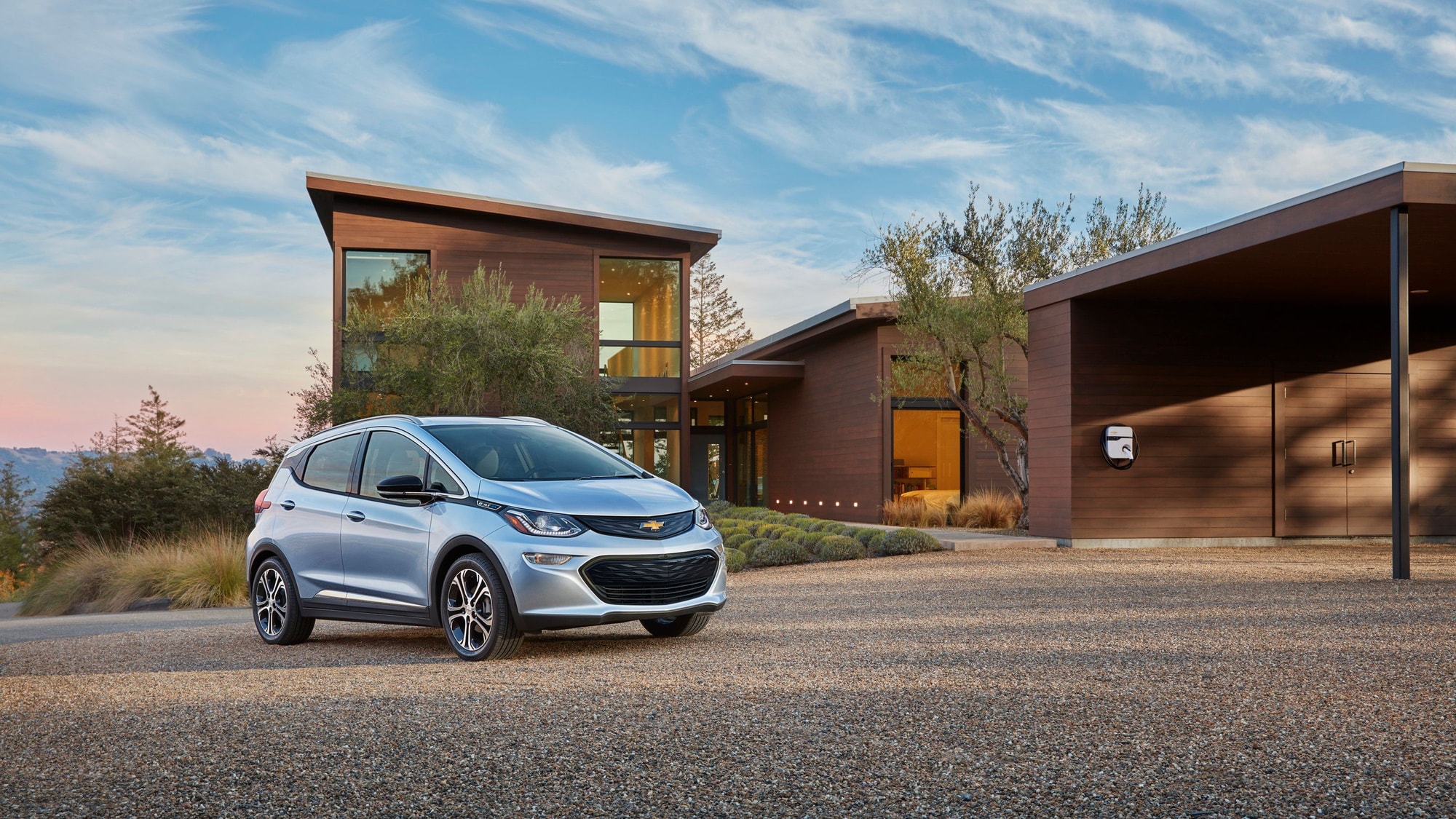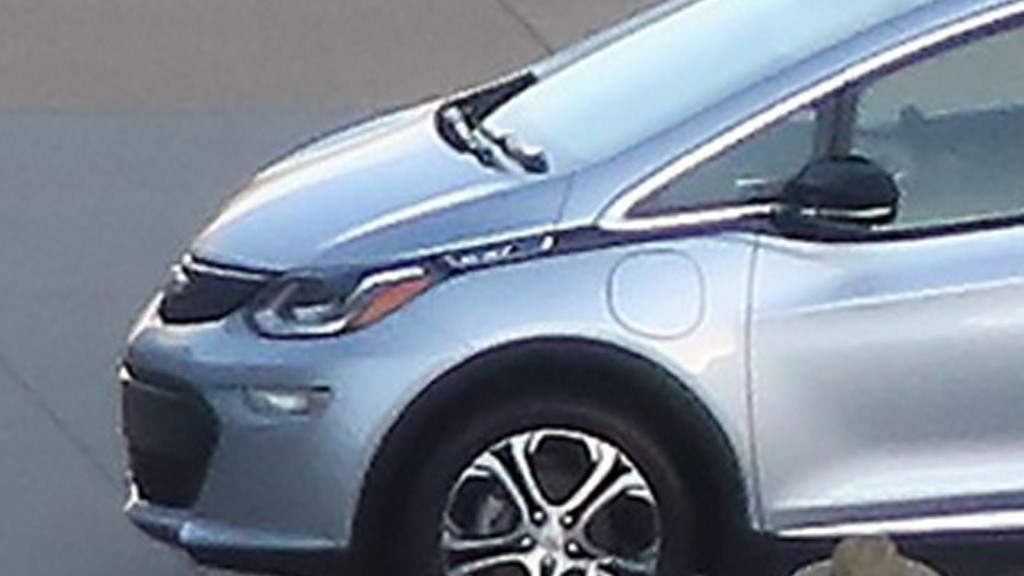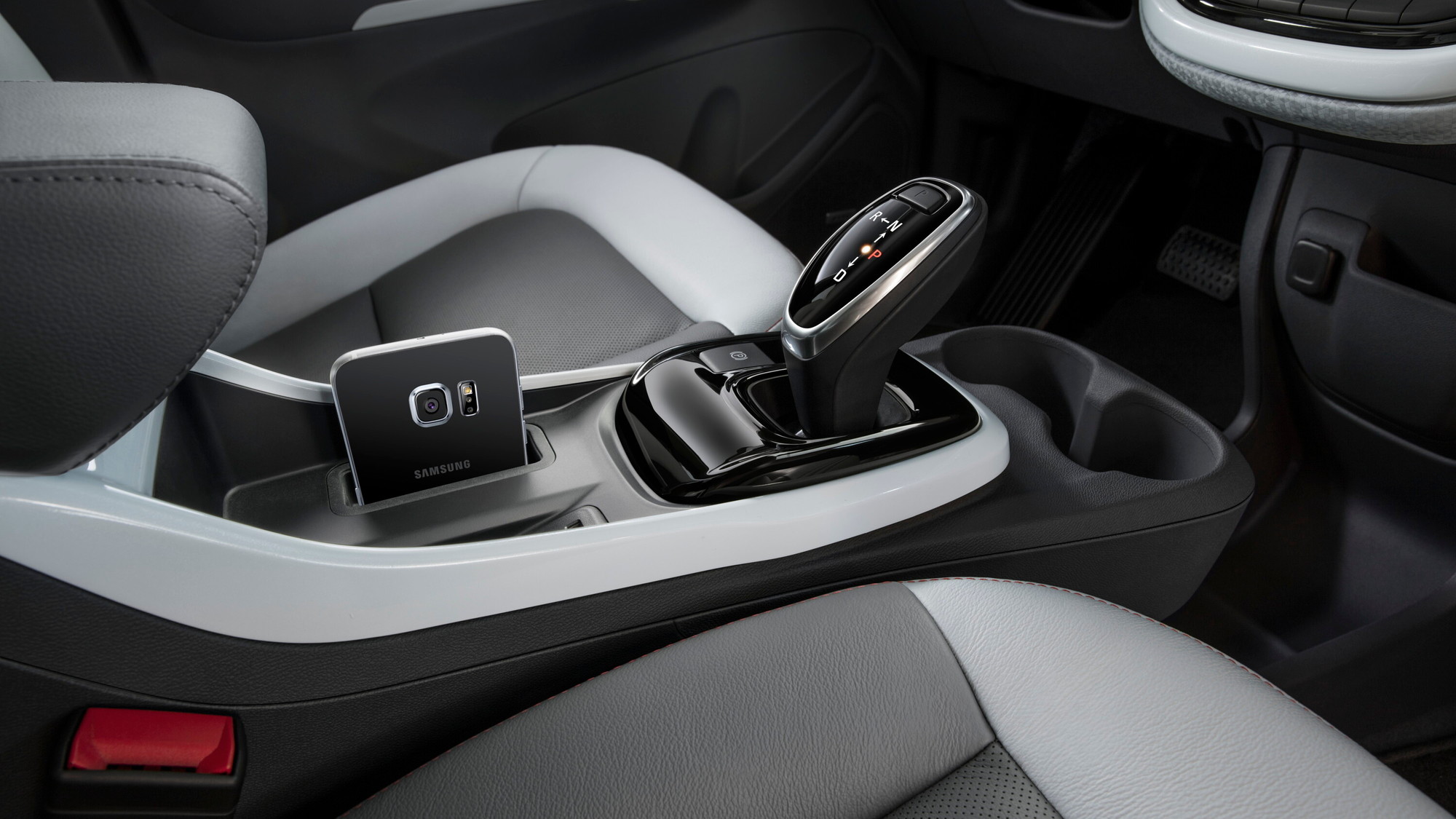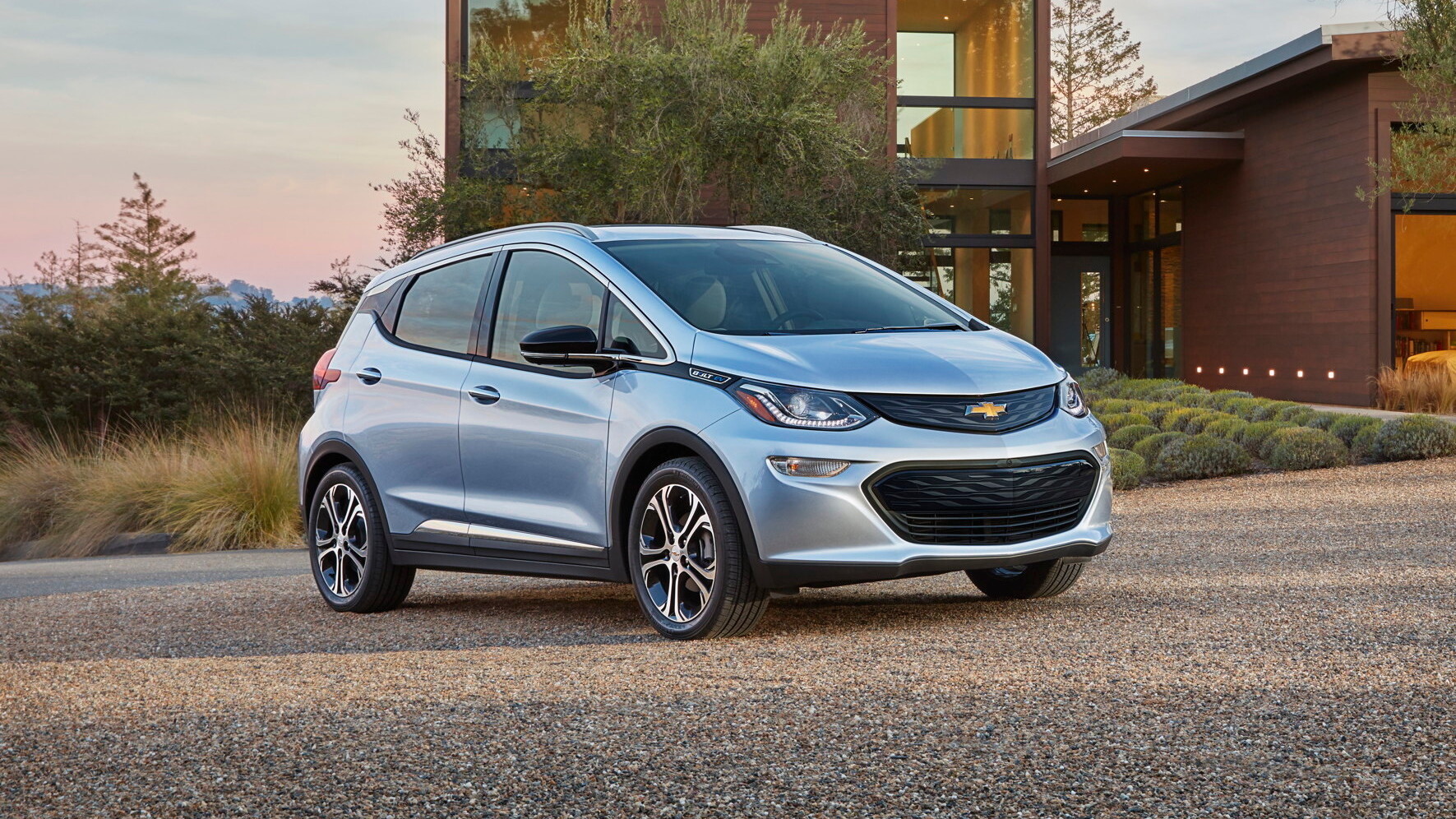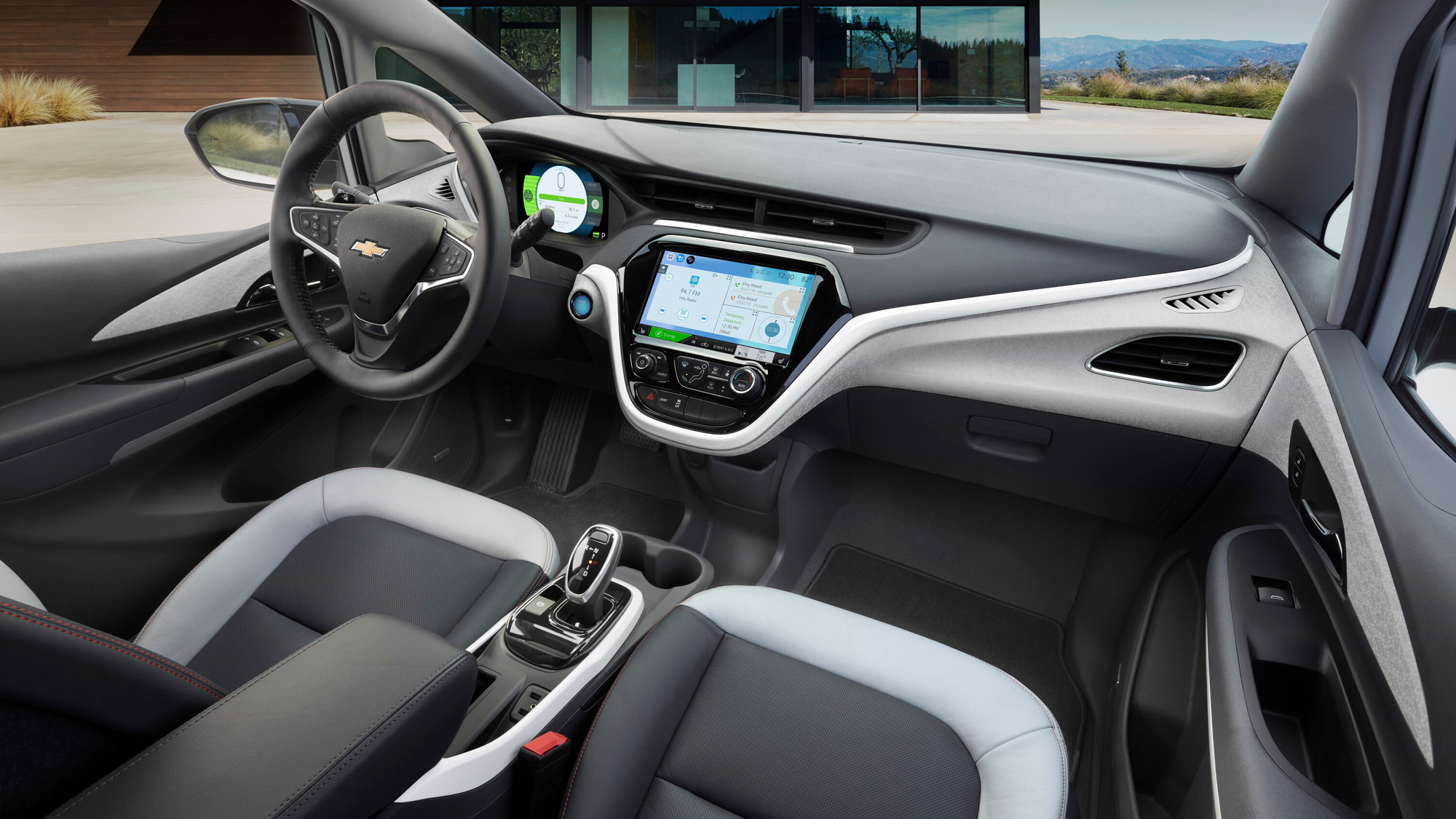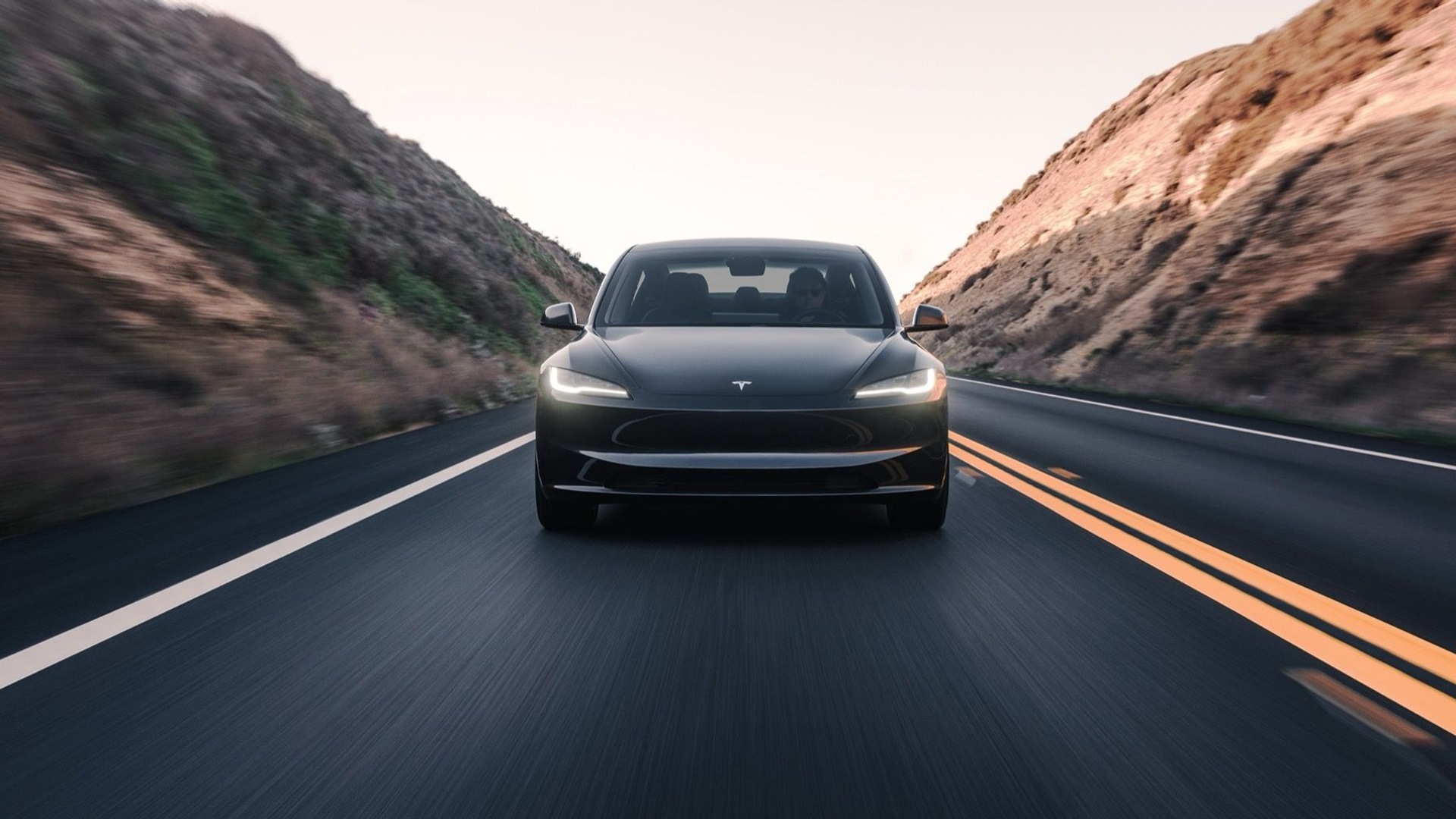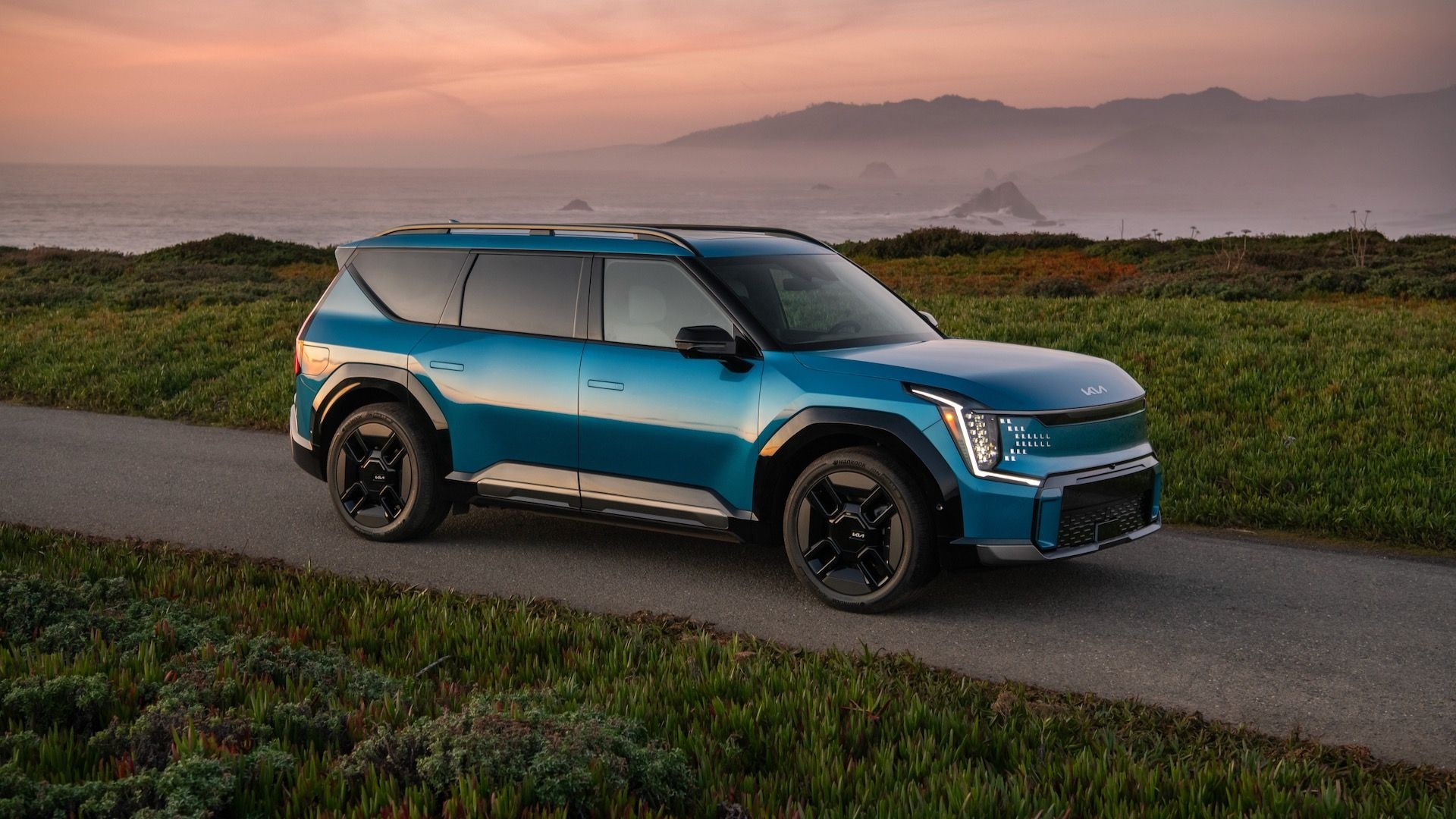Owners of certain 2017-2019 Chevrolet Bolt EV models have been living with 90% of their battery capacity for months—and 90% of their full driving range—due to concerns over a fire risk relating to the battery. Fortunately that period is nearly over; late last week GM announced a remedy that will restore the full functionality of these vehicles.
The remedy, posted Saturday, involves another trip back to the dealership—for a procedure that has service departments “utilize GM-developed diagnostic tools to identify potential battery anomalies and replace battery module assemblies as necessary.”
The visit to the dealership also involves installing “advanced onboard diagnostic software into these vehicles that, among other things has the ability to detect potential issues related to changes in battery module performance before problems can develop.”
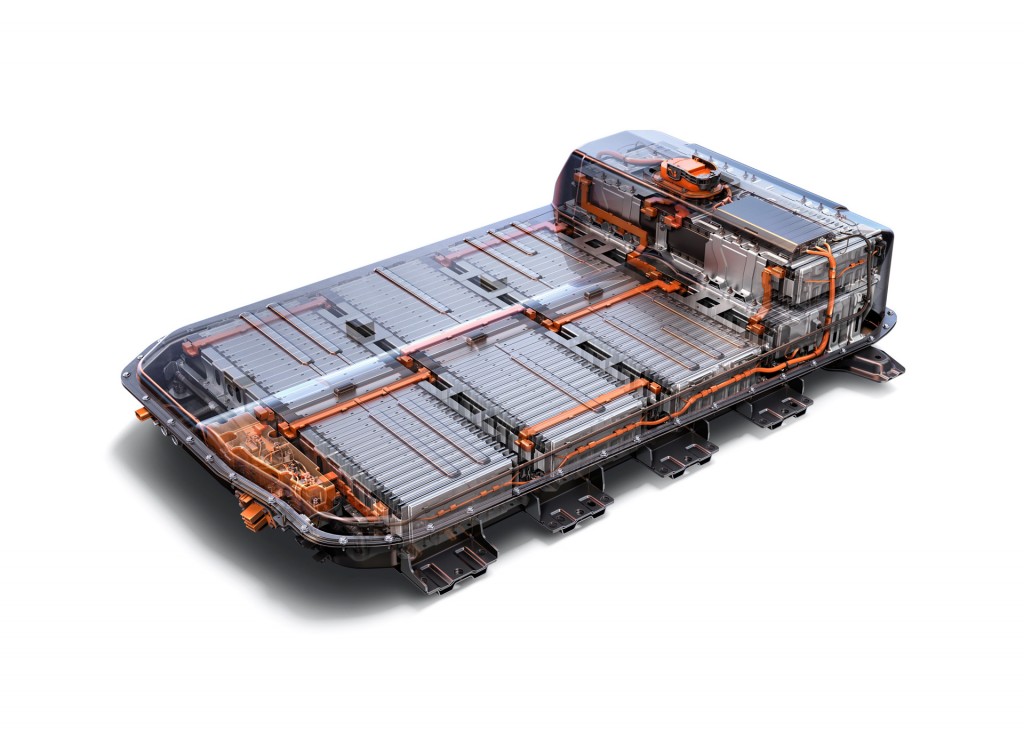
2017 Chevrolet Bolt EV
The timing mostly keeps with GM’s plan announced in February for an April rollout for the fix. At that time the company noted that there were “hundreds of engineers working around the clock on the issue.”
GM’s remedy does not automatically involve the physical replacement of cells, as Hyundai chose to do with its Kona Electric for an issue that sounded at face value quite similar—and potentially, the most expensive EV recall ever.
Although the same size and type of cells, from LG Chem, are used in both vehicles, GM has said there are key differences. Not all LG Chem cells in the Bolt EV are affected by the issue, either. In 2019 the Chevy electric car transitioned from the affected “design level N2.1” cells to seemingly unaffected cells, with a design change supplied by a facility in Holland, Michigan, instead of Ochang, South Korea.
The company says that it will be making the new diagnostic software available to all other Bolt EV owners soon—and installed on the 2022 Bolt EV and EUV.
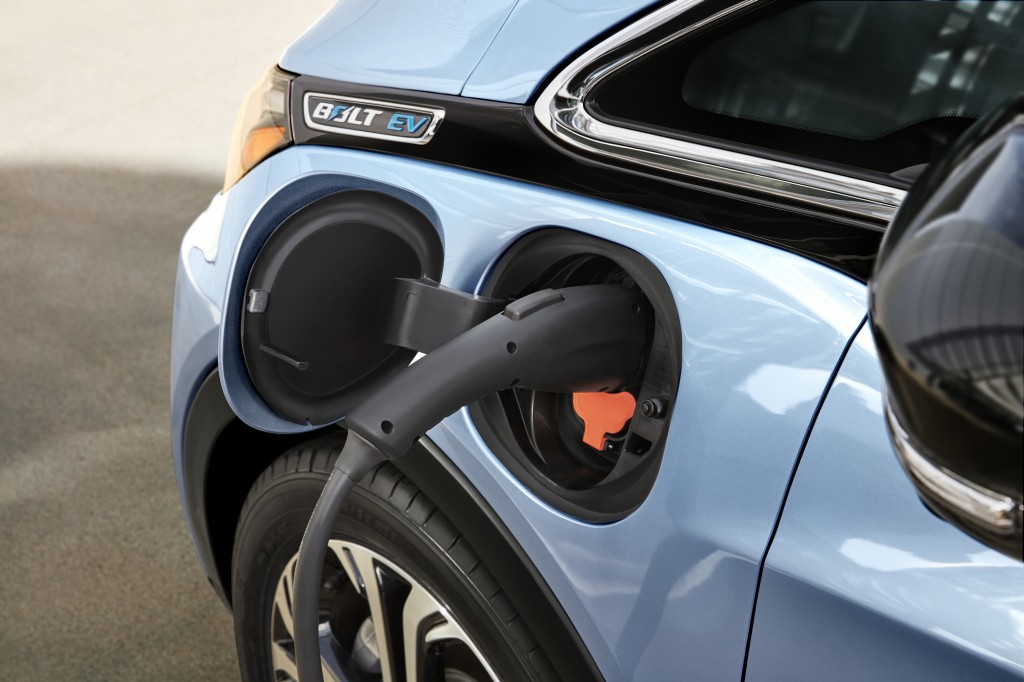
2017 Chevrolet Bolt EV
GM’s original recall for the issue, issued last November, included 68,667 vehicles globally, with 50,925 of those in the U.S. It followed a safety probe launched by the NHTSA last October, in response to reports of at least three instances of fire. At the time GM issued the recall there had been five confirmed cases, all when the vehicle was parked with a full or nearly full state of charge.
Once the remedy has been performed, customers will get the 90%-state-of-charge cap removed and be able to charge up to 100%.
Those with the 2019 Bolt EV models affected by the issue are eligible to have the work performed now, and those with a 2017 or 2018 Bolt EV will be eligible by late May.
